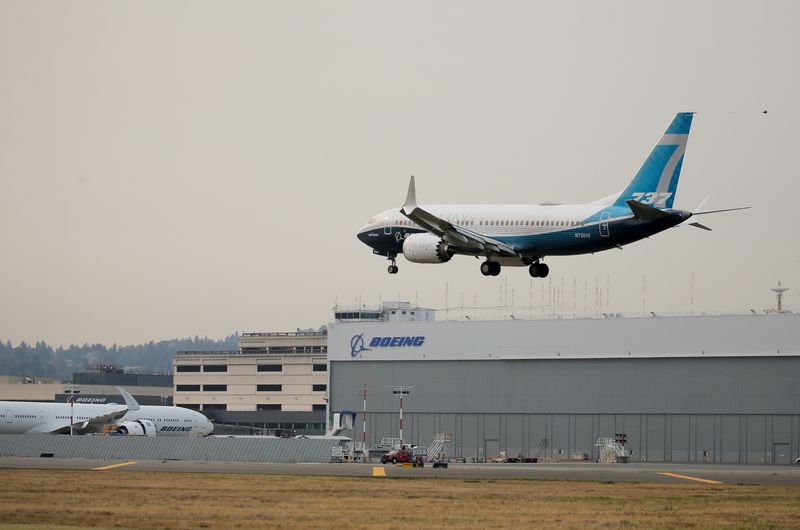By David Shepardson
LONDON (Reuters) - Boeing (NYSE:BA)'s commercial airplane chief said the planemaker has settled on the design to address an engine anti-ice system that has significantly delayed certification of the 737 MAX 7 and suggested a fix could be completed by next year.
The issue with the anti-ice system could lead to it overheating and potentially causing an engine failure. "We're progressing on the engineering," Stephanie Pope said in a meeting with reporters.
Asked if the planemaker will conduct a flight test later this year and complete the fix around early to mid-2025, Pope did not offer a formal prediction but said she thought it would be around that time.
Boeing, under scrutiny over its safety record after the mid-air blowout of a cabin panel on a new Alaska Airlines MAX 9, in January withdrew a request it filed with the Federal Aviation Administration (FAA) last year seeking an exemption from a safety standard for the MAX 7 over the issue, which pushed potential certification into 2025 or later.
Senator Tammy Duckworth in January urged Boeing to abandon the exemption request, saying the issue could "cause the engine nacelle to break apart and fall off. This could generate fuselage-penetrating debris, which could endanger passengers in window seats behind the wing."
The FAA, which has repeatedly declined to put any timetable on approval, has said it "will thoroughly review any design Boeing submits."
Boeing has said there have been no safety incidents observed in MAX 8 and MAX 9 planes in service stemming from overheating in the engine inlet.
The planemaker issued guidance to airlines in June 2023 to follow established procedures when using the MAX's engine anti-ice system to address potential overheating, and the FAA in August 2023 mandated the existing procedure to turn off the engine anti-ice system when it is no longer needed.

Southwest Airlines (NYSE:LUV), the MAX 7's biggest buyer, said in January it no longer expected to take deliveries of the model this year.
Boeing has said it must first win approval from the FAA for the MAX 7 before it can get the larger, better-selling MAX 10 certified.